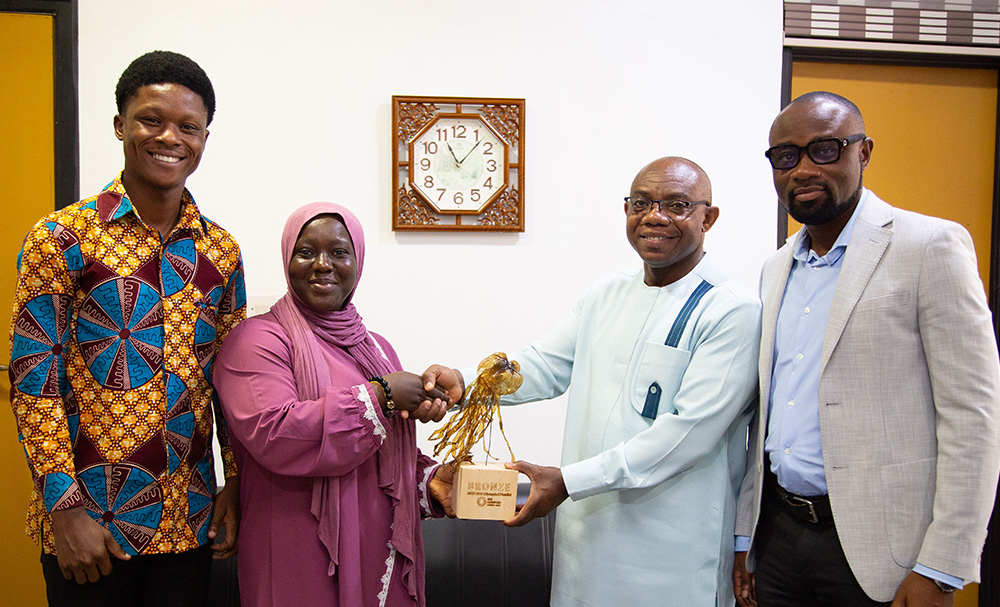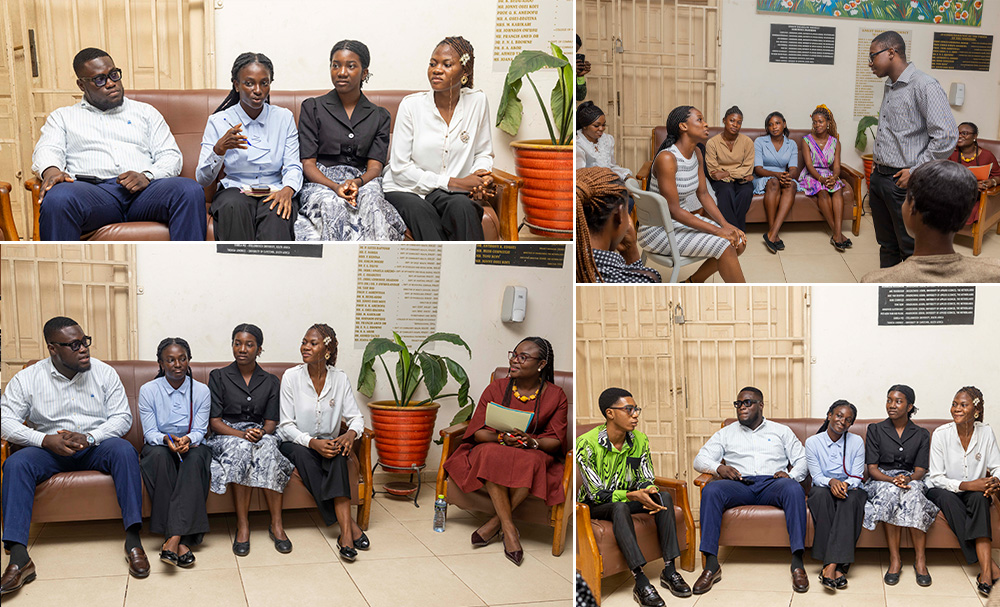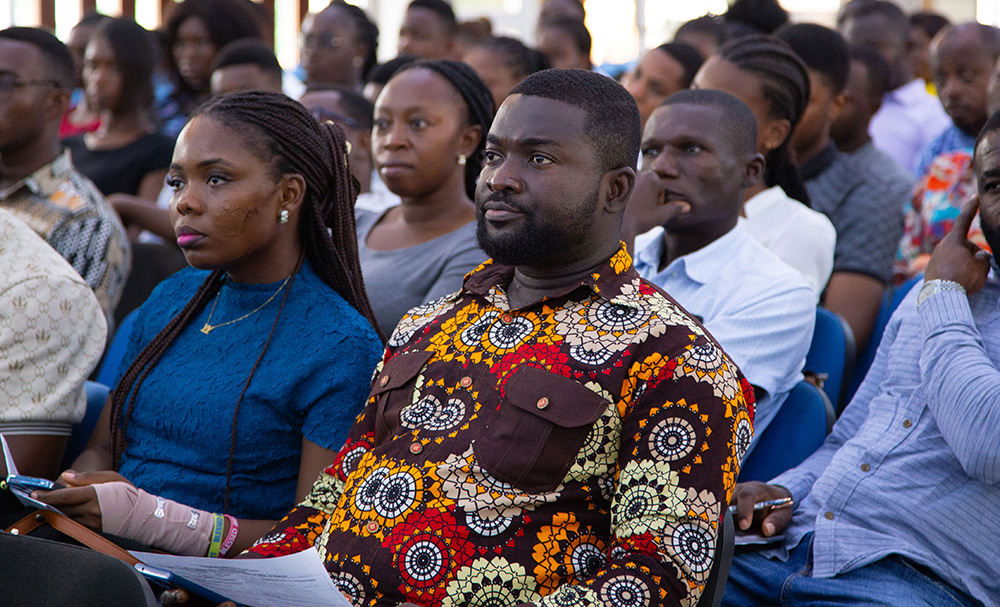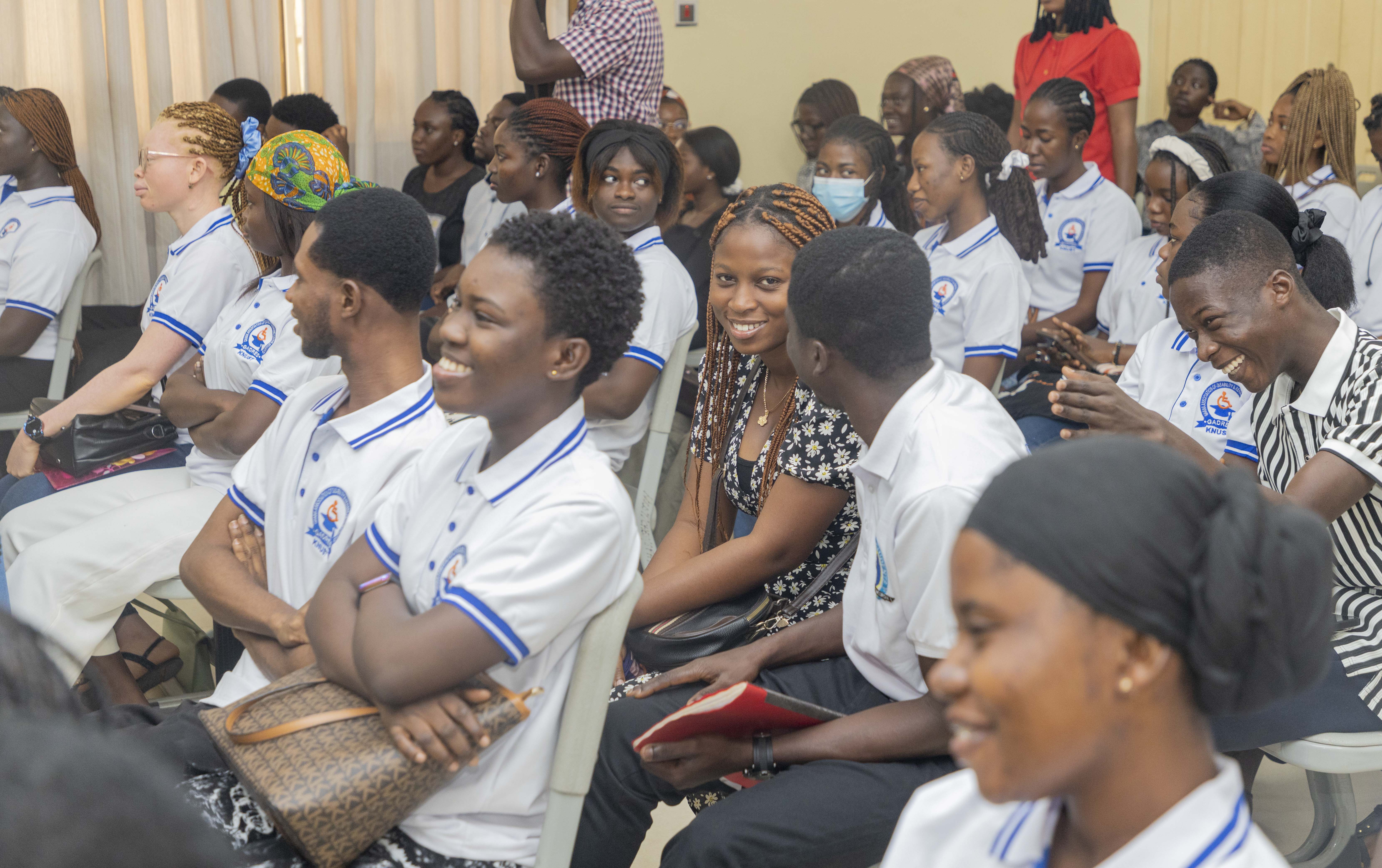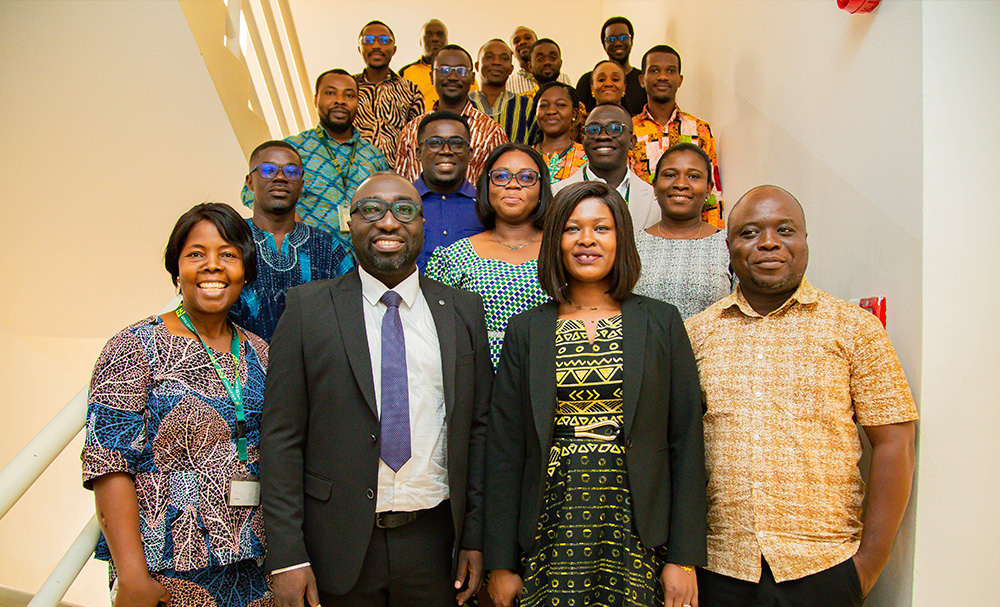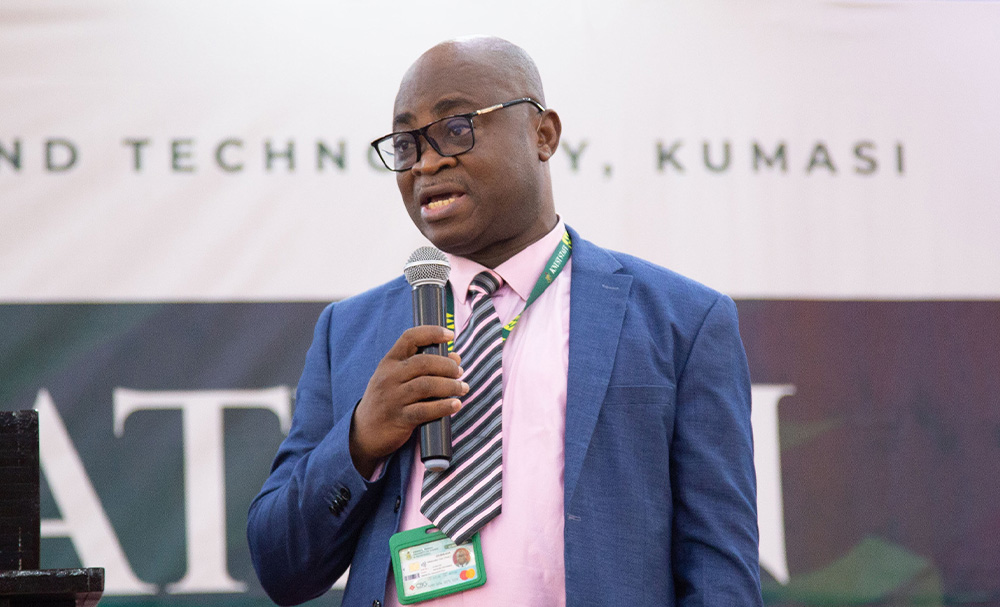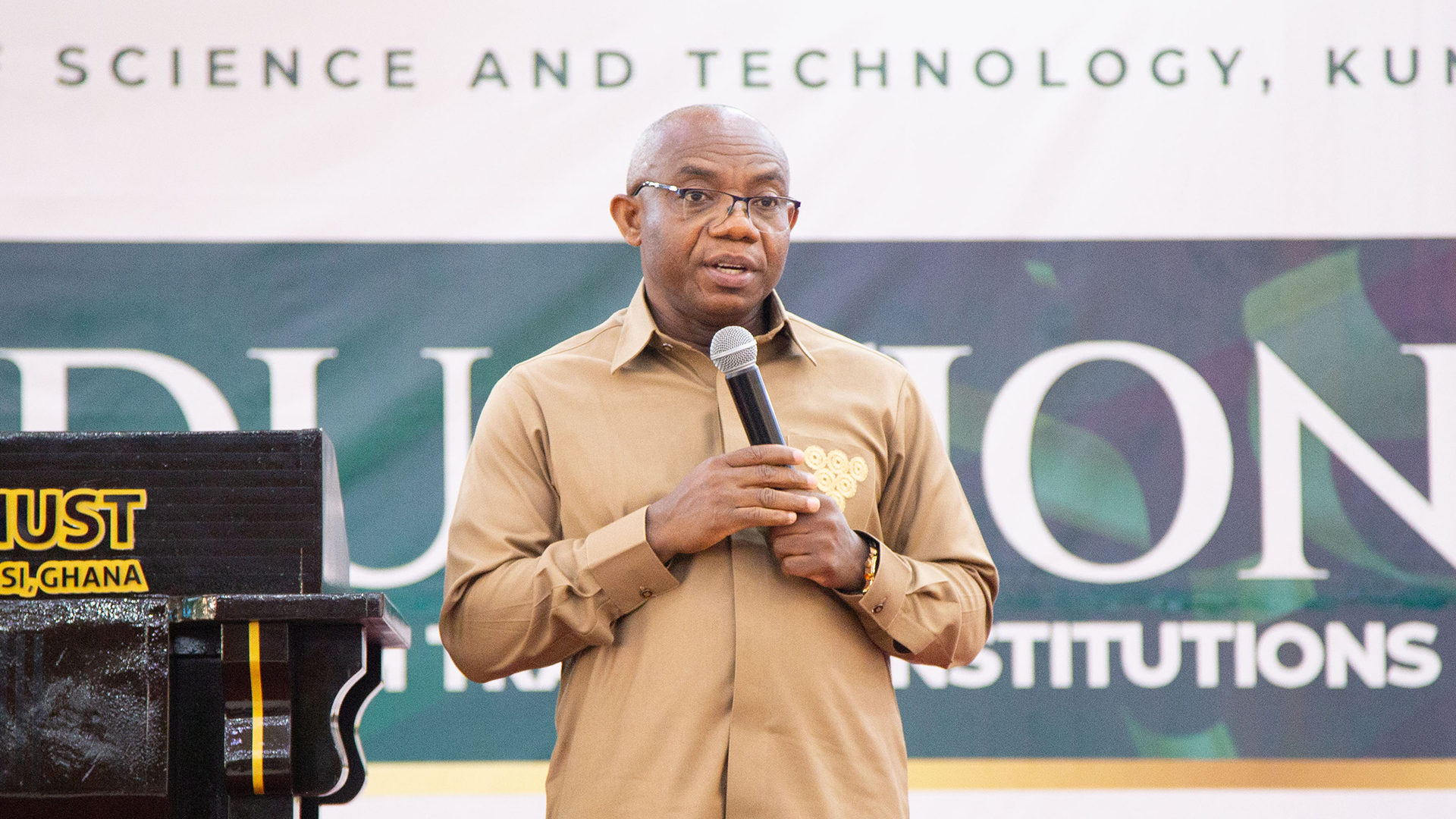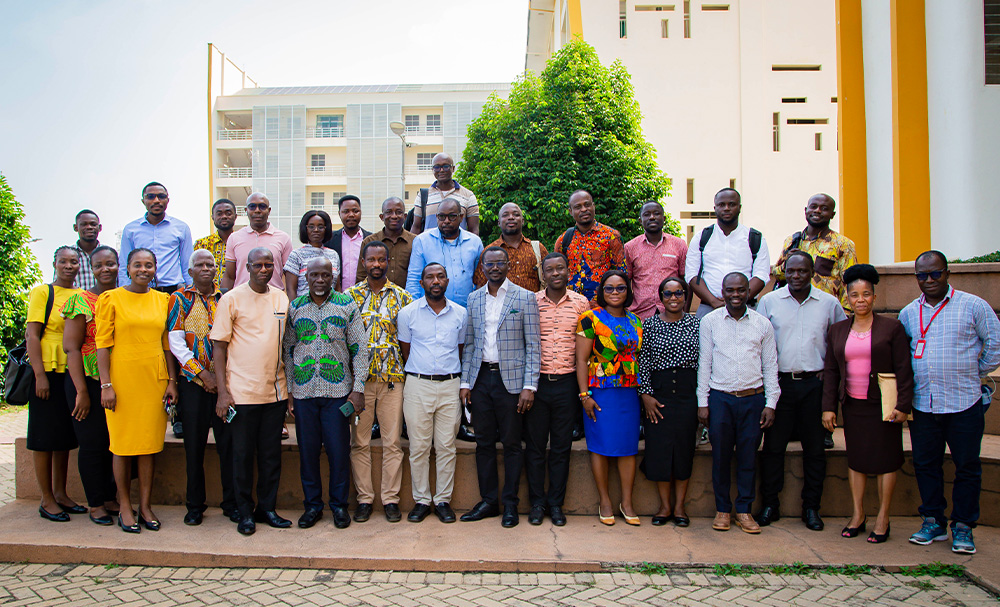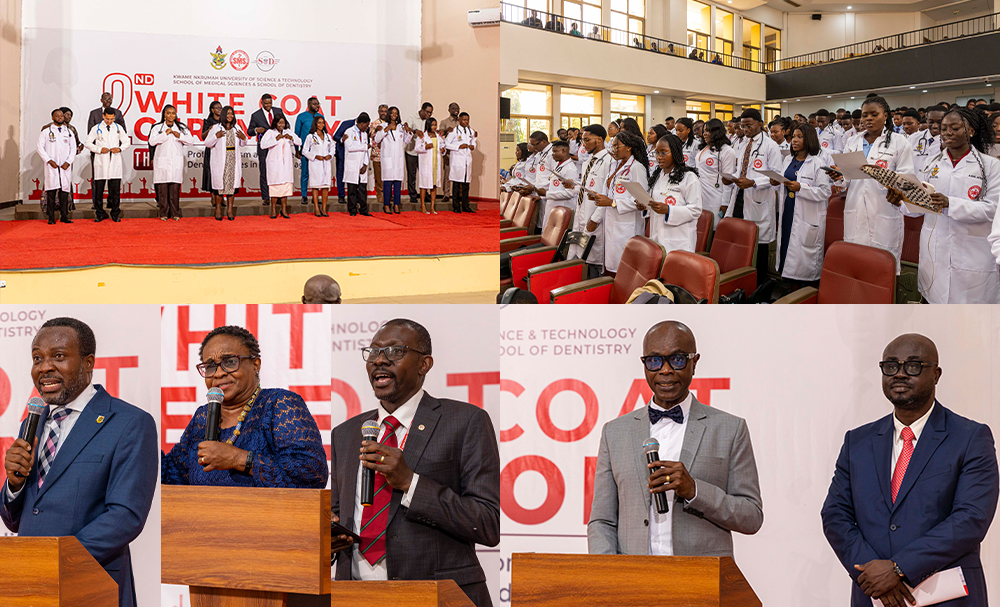KNUST Researcher, Professor Alexander Yaw Debrah honoured with the prestigious 2025 EDCTP Dr. Pascoal Mocumbi Prize.
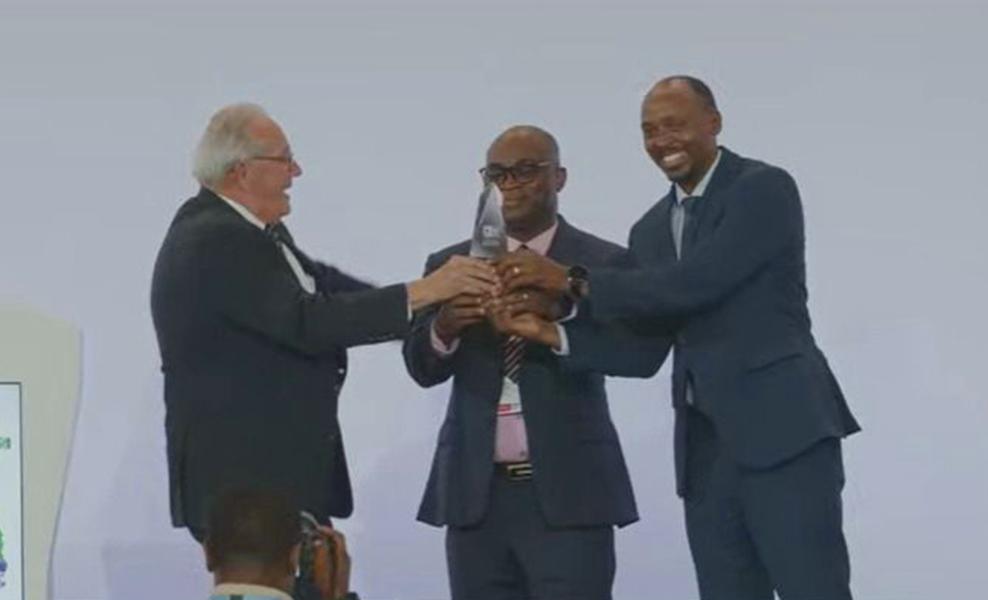
Professor Alexander Yaw Debrah, a Professor of Parasitology and Global Health at the Kwame Nkrumah University of Science and Technology (KNUST), Kumasi, receives the Prestigious EDCTP Dr. Pascoal Mocumbi Prize award 2025 for outstanding contributions to Global Health Research and Capacity Development in Africa.
On 15th June 2025, in Kigali, Rwanda Convention Centre, the European and Developing Countries Clinical Trials Partnership (EDCTP) announced and presented Professor Alexander Yaw Debrah as the recipient of the prestigious Dr. Pascoal Mocumbi Prize. This award recognizes Professor Debrah's exceptional achievements in advancing global health research and capacity development in Africa, significantly impacting the wellbeing of the African population, especially those suffering from Neglected Tropical diseases (NTDs).
The Dr. Pascoal Mocumbi Prize, named after EDCTP's first High Representative and a former Prime Minister of the Republic of Mozambique, honours individuals who have made unique contributions to promoting Africa-Europe partnerships in global health research, facilitating clinical development of products for poverty-related diseases, and advancing research capacity development in sub-Saharan Africa. The prize is open to senior scientists, policymakers, or advocates for health and research from anywhere in the world. It comes with a recognition trophy and a cash prize of €50,000.
As a Medical Parasitologist and Global Health Advocate, Professor Debrah has more than two decades of experience in teaching, research, mentorship, and community service.
Professor Debrah has held several positions at KNUST, including Head of Department of Medical Diagnostics, Acting Provost of the College of Health Sciences and the current of the Dean of the Faculty of the Allied Health Sciences . He is also an elected Professorial Representative of the College of Health Sciences on the Academic Board of KNUST.
For National contributions, Professor Debrah has held many positions including being a member of the Ghana Health Service Intra-Country Coordinating Committee (ICCC) against Neglected Tropical Diseases (NTDs), whose mandate is to help eliminate NTDs in Ghana. On the International front, he has held many positions including the Chair of the Planning Committee of the Inter-Science Conference on Antimicrobial Agents and Chemotherapy (ICAAC) of the American Society of Microbiology.
Professor Debrah has led many basic and complex clinical research in Ghana. He has been involved in many clinical trials to find better drugs for treating lymphatic filariasis and river blindness. He has established research partnerships with international institutions, including University of Bonn in Germany, Liverpool School of Tropical Medicine, Case Western Reserve University of Cleveland in USA, University of Buea in Cameroon and National Institute of Medical Research (NIMR), Tanzania.
Professor Debrah’s early career research contributed significantly to the knowledge of lymphatic filariasis disease development which was poorly understood in the past decades. His research was among the first to report that lymphedema (or elephantiasis, which is the more advanced form) and hydrocele (scrotal swelling) due to filariasis have a genetic tendency and doxycycline, a very cheap and affordable drug on the Ghanaian market could be used to treat them.
He is the group leader of the Filariasis Research Group at the Kumasi Centre for Collaborative Research (KCCR) at the KNUST, and the Director of a multi-country consortium, TAKeOFF, funded by the German Ministry of Education and Research, dedicated to tackling the obstacles to fight filarial infections in Ghana, Tanzania and Cameroon.
He has attracted many grants exceeding Fifteen Million Euros (€15,000,000) from significant funders, including the EDCTP, Bill and Melinda Gates Foundation, the European Commission and German Ministry of Education and Research.
Together with partners from KNUST and Germany, Professor Debrah received funds from German Academic Exchange Service (DAAD) to establish the German-West African Centre for Global Health and Pandemic Prevention (G-WAC) at KNUST.
Together with his Bonn partners, Professor Debrah received the prestigious bi-annual main prize of the German Paul-Ehrlich Society for anti-infective therapy and the prestigious German “Momento Research” Prize for Neglected Tropical Diseases.
As a distinguished research fellow and academic, Professor Debrah in 2023 and 2024 was invited to deliver talks titled 'Tackling the Obstacles to Fight Filarial Infections and Podoconiosis' and ‘How North-South research collaborations contribute to the achievement of SDG target 3: Ensure healthy lives and promote well beings for all at all ages’ at the 9th and 10th UN General Assembly Science Summits, respectively held in New York City.
He has over 160 publications in peer reviewed journals.
At the award ceremony, Marcel Tanner, EDCTP High Representative and President of the Swiss Academy of Arts and Sciences, Switzerland praised Professor Debrah’s dedication to global health research and capacity building which embodies the spirit of the Dr. Pascoal Mocumbi Prize. "We are honored to recognize his outstanding contributions," he added.
The EDCTP is a public-public partnership between European and African countries, supported by the European Union. Its mission is to accelerate the development of new or improved medicinal products for poverty-related infectious diseases through clinical research and capacity building in sub-Saharan Africa.
The KNUST College of Health Sciences applauds Professor Alexander Yaw Debrah for this outstanding achievement.
